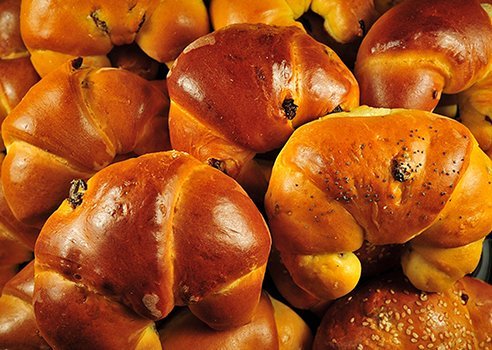Reading time: Just over 1 minute
Increase your vocabulary and you’ll make your writing much more precise. That’s why I provide a word of the week. Today’s word: suppurate.
When I worked in the daily newspaper business, I spent an occasional few hours in the photo studio. I was helping to edit a cookbook and although the book needed no photography sometimes the food stylists wanted my opinion about a shoot for the newspaper
The fastidiousness they put into photographing food, and the equipment it required, startled me. Did you know, for example, that blowtorch can nicely brown raw hamburger? That hairspray can help make a stale piece of cake look fresher? That brown shoe polish can help raw meat look straight off of the grill? (I have no idea about the tricks the photographer of the croissants, shown above, might have employed.)
I was thinking about food recently, when I read the delightful — and very brief — book The Pedant in the Kitchen by Julian Barnes. More famous for his other books, such as Flaubert’s Parrot, and The Sense of an Ending, Barnes nevertheless writes about food in an entertaining and engaging way.
He also has a prodigious vocabulary. I made notes about his use of several words but my favourite was: suppurates. Here’s how he used it:
These pictures haven’t been fiddled with, and yet the food they depict still suppurates with glamour compared to anything the average punter turns out.
Interestingly, the word means to fester, or to ooze with pus. From an etymological perspective, the word dates back to the early 15th century, from the Latin suppuratus, past participle of suppurate, meaning to “form or discharge pus.”
It’s not the sort of word you’d expect in a book about food — or in this particular sentence for that matter. I think Barnes uses it here to express his disgust with the kinds of “tricks” used by food photographers to make something look more appealing than it really is.


